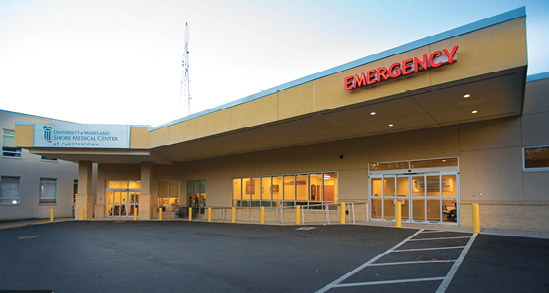The University of Maryland Medical System Board of Directors, the parent board of UM Shore Regional Health, has established new governance guidelines to protect the system from conflicts of interest that forced the resignation of former Baltimore Mayor Catherine Pugh and other board members this spring, according to an UMMS Special Committee Investigative Report released Friday.
The special committee appointed the law firm of Latham & Watkins LLP to conduct the investigation.
“There is no question the past conduct undertaken by certain former corporate officers and board members was extremely problematic and damaged the reputation of the system,” said a statement from UMMS Communication Director Michael Schwartzberg that was released with the report. “Undoubtedly, there were structural, governance and operational flaws at the System’s Board and executive level.”
The 34-page report identified “self-interested transactions” between nine board members and executive management–where board members and/or their family members benefitted financially.
“Ineffective” and “incomplete” conflict-of-interest policies enabled board members to solicit executive management for contracts, the report said.
John Dillon, former chair of University of Maryland Shore Regional Health, received a contract in 2012 to provide fundraising and public relations services to UMMS at a rate of $13,000 per month. The contract was approved by letter of agreement, with then UMMS CEO Robert Chrencik, and renewed every year through 2019 without using the system’s competitive bidding process–and without proper approval of the board.
There was also “no evidence of any discussion of, review of, vote on, or approval of the arrangement by the Board,” the report said.
Although Dillon had disclosed his earnings from the agreement every year, many board members and some senior executives “insisted” they were unaware of the existence of the agreement.
The report questioned whether Dillon had received compensation for duties that were consistent with board membership that is normally on a volunteer basis.
Dillon’s duties, based on the 2018 renewal of his contract, were to raise money for a new medical center, perform community outreach and advise on “hospital acquisitions and the expansion of the Medical System.”
But some in senior management vouched for Dillon that his duties were “far above” that of a volunteer board member. Dillon disclosed that he spent 25 hours a week on his contractual obligations, but the committee concluded that there was little difference between Dillion’s contractual duties and that expected of a volunteer board member.
The committee also determined that Dillon’s agreement violated UMMS’ volunteer services bylaws because it was not properly approved by the board.
Don’t miss the latest! You can subscribe to The Chestertown Spy‘s free Daily Intelligence Report here.



Bill Anderson says
Beautiful!! When nobody is interested in watching the activities of others, robbing an entity doesn’t require the deployment of a gun. Here is one who received $13,000 per month ($156,000 annually, for 7 years – total of $1,092,000 for “work” customarily done on a volunteer level. And some people wonder where the money went, or why inadequate funds are not available for essential needs.
Karen O'Connor says
In light of this dishonestly let’s void the agreement to take over Chester River Health System!